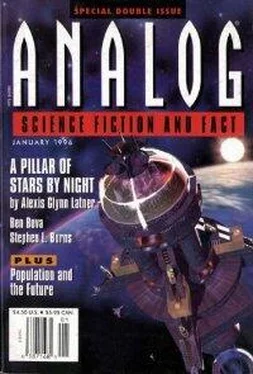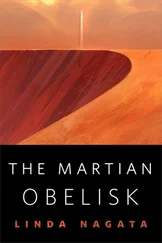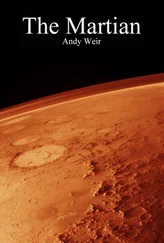G. Nordley - Martian Valkyrie
Здесь есть возможность читать онлайн «G. Nordley - Martian Valkyrie» весь текст электронной книги совершенно бесплатно (целиком полную версию без сокращений). В некоторых случаях можно слушать аудио, скачать через торрент в формате fb2 и присутствует краткое содержание. Год выпуска: 1996, Издательство: Dell Magazines, Жанр: Космическая фантастика, на английском языке. Описание произведения, (предисловие) а так же отзывы посетителей доступны на портале библиотеки ЛибКат.
- Название:Martian Valkyrie
- Автор:
- Издательство:Dell Magazines
- Жанр:
- Год:1996
- ISBN:нет данных
- Рейтинг книги:5 / 5. Голосов: 1
-
Избранное:Добавить в избранное
- Отзывы:
-
Ваша оценка:
- 100
- 1
- 2
- 3
- 4
- 5
Martian Valkyrie: краткое содержание, описание и аннотация
Предлагаем к чтению аннотацию, описание, краткое содержание или предисловие (зависит от того, что написал сам автор книги «Martian Valkyrie»). Если вы не нашли необходимую информацию о книге — напишите в комментариях, мы постараемся отыскать её.
Martian Valkyrie — читать онлайн бесплатно полную книгу (весь текст) целиком
Ниже представлен текст книги, разбитый по страницам. Система сохранения места последней прочитанной страницы, позволяет с удобством читать онлайн бесплатно книгу «Martian Valkyrie», без необходимости каждый раз заново искать на чём Вы остановились. Поставьте закладку, и сможете в любой момент перейти на страницу, на которой закончили чтение.
Интервал:
Закладка:
My moment of triumph was shortlived. Hours before, the Amundsen had made a final course correction— an expected maneuver given the chancy aerobraking ahead of it. But the trajectory report indicated that the Amundsen had actually done a major burn toward the planet! The burn had cut hours off its trajectory, but it would hit the Martian atmosphere at a slightly higher velocity, just an hour before our burn. So the Norwegians weren’t racing? I thought about negative lift and velocity-squared aerodynamic effects and could guess that something besides the race might have led them to this suicidal dive into the Martian atmosphere, but it wasn’t very convincing. No, I decided, Per Nordli was taking this risk so Halvorsen wouldn’t lose his diabolical little race.
¡Madre diablo! Given the way he managed all the other news about the expedition, couldn’t Dr. Worthing have held that announcement back from us until we were safely in orbit?
But no. As we approached our eight-hundred kilometer periapsis, the Amundsen went past us, rounding the rim of the planet. We watched its entry on images from the robot telescopes on Deimos—a long trail of fire covering almost a quarter the circumference of the planet, which then winked out.
Had the Amundsen crashed? Had it burned up before reaching the surface? I both feared, and—forgive me— hoped that might be the case.
But no. We saw the landing pictures taken by an automated camera on the Norwegian supply ships and relayed from Earth just as we prepared for our insertion burn. Then there was that historic video from the cabin of the Amundsen .
When Halvorsen has a point to make, he doesn’t go half way. Despite his talk of Per being better with piloting and trajectories, the first person to land on Mars with the Norwegian and United Nations flags on the side of her ship was Dr. Ingrid Bodil Karinsdatter.
“May their malfunctioning toilets line their vacuum tents with their own dung,” Mustaffa muttered. But other than that, there were just stony looks all through operations.
We were demoralized. We’d lost a race we hadn’t known we were in until it was too late, and we’d lost it to someone we regarded as a bimbo. If you are European, perhaps you say, “So what? That’s a juvenile attitude. Professional astronauts shouldn’t be fazed by that.” But most of my men were not from your culture; their pride had been wounded and their values insulted—and we still had a great many very complex things to do.
Spacecraft had to be prepared for thrust after four months of no gravity. Countless things were stowed. Chairs were moved to the aft bulkhead. A myriad of checklists were executed. Finally, the count reached zero.
On the Zhang-Diaz a gentle thrumming vibration took hold, and a sense of down returned. There were disturbing clatters and crashes as things forgotten fell aft, but the thrust ramped up smoothly. The other ships kept pace and formation. I crossed my fingers and hoped the blow to our morale would have no effect, at least not now.
Perhaps it would have made no difference, but perhaps if the crew of the Leonov had been mentally and emotionally sharp, they would not have missed some things and a water bulb would not have fallen from the sill of a viewport and broken on a relay box that should have been closed, soaking its contents as thrust increased.
And the pilot would not have switched circuits to their backups in exactly the wrong order, causing the Leonov’s lander to separate when deceleration built up to half a gee.
And the lander would not have continued forward to strike the decelerating Calypso.
And the suddenly lighter Leonov would not have moved backward relative to the Clarke and into the exhaust of the latter’s nuclear rocket.
And the radiation level monitors aboard the Leonov would not have shut down their reactor before they had braked into the proper orbit, forcing them to complete the burn with what remained of their maneuvering fuel.
And the Clarke’s computer would not have shut down its engine to avoid endangering the Leonov when it found the latter spacecraft in its exhaust cone.
Caramba! Perhaps something like that would have all happened anyway, as Halvorsen anticipated, because of the complexity. But I think it was because we were on edge, unhappy at losing the “race,” and already dreaming about getting home.
The Calypso’s chemical propellant tanks ruptured, but they somehow retained attitude control by gimbaling the main engine, avoided hitting the Martian atmosphere, and limped into a high equatorial orbit. Mustaffa cut our burn short manually to follow them and, using prodigious quantities of our maneuvering fuel, we managed a rendezvous.
Pierre Ramon and Mustaffa went out in vacuum suits, and managed to bring the six survivors over before their leaking hull finally gave way.
So the rescue was an epic of astronautics, but it left the Calypso ruined and the Zhang-Diaz in a too-large eccentric orbit with almost no chemical propellant left. Rendezvous with the supply depot was now impossible.
The Clarke’s maneuver had been stopped short of capture and they now had to take the emergency return trajectory back to Earth. The name of the ship’s commander was Roger Moses—another irony.
But the Leonov did manage its rendezvous with Deimos and the supply depot-one out of four. By the time Mission Control and my staff had straightened everything out, we had lost two days of schedule time, two spacecraft, and three landers, including both wheeled surface vehicles.
And where was Per Nordli? He was ten hours behind in the other Norwegian ship, the Fram. Halvorsen had told me they had their own redundancies and were not relying on us. I had not thought that through, but now it made sense that the better pilot come in second, in case a rescue was needed. He demonstrated his mastery by declining a one-shot landing; he skipped out into a long elliptical orbit that matched ours, and offered assistance. But Mission Control determined that there was nothing his little ship could do.
Meanwhile, some of the Leonov’s crew reported exceeding their radiation limits and the doctors recommended that they go to the surface or return now They voted to stay.
Perhaps we should have aborted the mission entirely, but I railed against this. To come so far…
No! I was a whirlwind of orders. We would fight back from disaster. We launched all our automated probes, balloons, and teleoperated rovers at once. They sped toward Mars well ahead of us, and data started streaming in as we passed the atmosphere-grazing periapsis of our orbit. Good news started to displace bad news.
Dr. Worthing sent out press releases that emphasized the redundancy built into the mission and the superior technical equipment in the United Nations landers versus those of the Norwegians. We expressed great sadness for our casualties, but dedicated the remaining mission to them.
I took risks. The Zhang-Diaz was trapped in an unusable orbit, but had a usable lander. My staff came up with a brilliant improvisation: The Zhang-Diaz lander could do an atmosphere-assisted orbit change to rendezvous with Deimos and the Leonov.
Once at Deimos, the lander could take on fuel and that would at least give us the option of a landing. Since there was no point any longer in pretending that such maneuvers were too uncertain for manned spacecraft, Mission Control quietly acceded—just in time for us to follow our fleet of drones into the atmosphere on that first periapsis.
Within twenty-four hours, we had a fueled lander ready to go. But Mission Control still objected to a one-lander surface mission in such circumstances.
Читать дальшеИнтервал:
Закладка:
Похожие книги на «Martian Valkyrie»
Представляем Вашему вниманию похожие книги на «Martian Valkyrie» списком для выбора. Мы отобрали схожую по названию и смыслу литературу в надежде предоставить читателям больше вариантов отыскать новые, интересные, ещё непрочитанные произведения.
Обсуждение, отзывы о книге «Martian Valkyrie» и просто собственные мнения читателей. Оставьте ваши комментарии, напишите, что Вы думаете о произведении, его смысле или главных героях. Укажите что конкретно понравилось, а что нет, и почему Вы так считаете.












